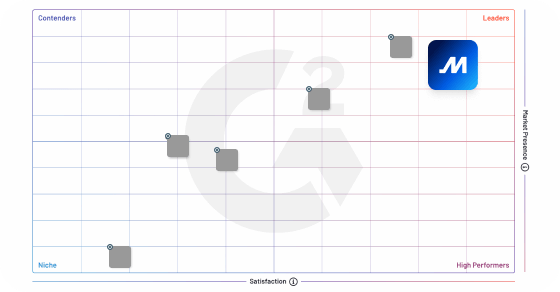Oil and gas
Oil and gas fleet management
Oil and gas fleet management refers to the strategic planning, coordination, and oversight of a company’s vehicles and transportation assets involved in the exploration, production, and distribution of oil and gas products. It involves managing a fleet of diverse vehicles, including trucks, tankers, trailers, and specialized equipment used in the industry.
Learn moreWorkover rig
A workover rig is a specialized drilling rig used in the oil and gas industry for performing workover operations on existing wells. Workover operations refer to a range of maintenance, repair, and remedial activities conducted to optimize or restore the productivity of a well.
Learn moreWellsite geologist
A wellsite geologist or mudlogging geologist, is a professional who works directly at oil and gas sites to provide geological expertise and analysis during drilling operations. They play a critical role in understanding the geological formations encountered while drilling and provide crucial information to support decision-making during well exploration and development.
Learn moreWaiting time exception
The trucking industry is a crucial component of the logistics and transportation sector. With millions of trucks on the road every day, it is not uncommon for unforeseen circumstances to arise that cause delays in the delivery of goods. The waiting time exception is one such issue that is commonly encountered in the trucking industry.
Learn moreTar sands
Tar sands, also known as oil sands, are a type of unconventional petroleum deposit that contains a mixture of bitumen, sand, clay, and water. They are found in various regions around the world, with significant reserves located in Alberta, Canada. Tar sands are a specific type of oil and gas resource that require specialized extraction methods.
Learn moreRoustabout
A roustabout refers to a general laborer or entry-level worker who performs various manual tasks and provides essential support to the operations of drilling rigs, production sites, and oilfield facilities. Roustabouts play a crucial role in maintaining the smooth functioning of oil and gas operations.
Learn morePetroleum
Petroleum is a broad term that refers to a naturally occurring mixture of hydrocarbons and other organic compounds found in the Earth’s crust. It is the raw material from which oil and gas are derived. Petroleum is a vital natural resource and serves as a major source of energy and fuel for various industries and daily life.
Learn moreOilfield
An oilfield refers to an area where oil and gas operations take place, encompassing a region with one or more oil or gas reservoirs. It is a geographical location where the exploration, production, and extraction of oil and gas resources occur.
Learn moreOil sands
Oil sands, also known as tar sands, are a type of unconventional petroleum deposit found in various regions around the world. They consist of a mixture of bitumen (a thick, heavy form of crude oil), water, sand, and clay minerals. The term “oil sands” refers specifically to deposits where bitumen is the primary component.
Learn moreOil derrick
An oil derrick, also known as an oil rig or drilling rig, is a towering structure used in the extraction of oil and gas resources from underground reservoirs. It is a key component of oil and gas exploration and production operations.
Learn moreOil and gas fleet vehicles
Oil and gas fleet vehicles are specialized vehicles used in the exploration, production, and transportation of oil and gas resources. These vehicles are essential in the day-to-day operations of the industry and are designed to meet the specific demands and challenges of the oil and gas sector.
Learn moreAmerican Petroleum Institute (APM)
The American Petroleum Institute (API) is a trade association established in 1919 to represent the oil and natural gas industry in the United States. It’s a leading organization that sets standards, conducts research, and advocates for policies that support the safe and responsible production, transportation, and use of petroleum and natural gas.
Learn moreMudlogger
A mudlogger, also known as a mud logging technician or mud engineer, is a professional who plays a crucial role in the oil and gas industry. Mudlogging is a specialized field that involves the monitoring and analysis of drilling mud and rock cuttings during the drilling process.
Learn moreLiquified petroleum gas (LPG)
LPG stands for liquefied petroleum gas, which is a versatile and widely used fuel source. It is a flammable hydrocarbon gas mixture consisting primarily of propane and butane, with small amounts of other gases.
Learn moreLiquified natural gas (LNG)
LNG is a natural gas that has been cooled to a very low temperature, around -162 degrees Celsius (-260 degrees Fahrenheit), at which point it transforms into a liquid state. The liquefaction process reduces the volume of natural gas by around 600 times, making it more efficient to transport and store.
Learn moreHazardous materials
Hazardous materials are substances or chemicals that pose a risk to health, safety, property, or the environment when transported. These materials can be in various forms, including solids, liquids, or gases, and can cause harm to people, animals, and the environment if not handled properly.
Learn moreFrac spread
Frac spread refers to a collection of equipment and machinery used during the hydraulic fracturing (fracking) process. It encompasses a combination of pumps, tanks, and other supporting equipment that work together to perform the fracturing operation efficiently and effectively.
Learn moreFrac crew
A frac crew, also known as a hydraulic fracturing crew, is a specialized team of workers responsible for carrying out the process of hydraulic fracturing, which is a key technique used in the extraction of oil and natural gas from underground reservoirs.
Learn moreFederal Energy Regulatory Commission (FERC)
The Federal Energy Regulatory Commission (FERC) is an independent agency within the U.S. government that regulates and oversees various aspects of the energy industry. It was established by Congress in 1977 with the primary goal of ensuring the reliable, efficient, and secure transmission of electricity, natural gas, and oil.
Learn moreEnhanced oil recovery (EOR)
Enhanced oil recovery (EOR), also known as tertiary recovery, is a set of techniques and processes employed in the oil and gas industry to extract additional oil from reservoirs after primary and secondary recovery methods have been utilized. EOR methods aim to improve extraction efficiency and increase the overall recovery factor of oil reservoirs.
Learn moreDrilling crew
A drilling crew is a team of individuals who work collaboratively to conduct drilling operations for the exploration and extraction of oil or natural gas reserves. The crew plays a vital role in executing drilling activities and ensuring the overall success of the drilling project.
Learn moreBarrel
In the oil and gas industry, the term “barrel” refers to a unit of measurement used to quantify the volume of crude oil and other petroleum products. It is one of the most commonly used units for trading and transporting oil globally.
Learn more


